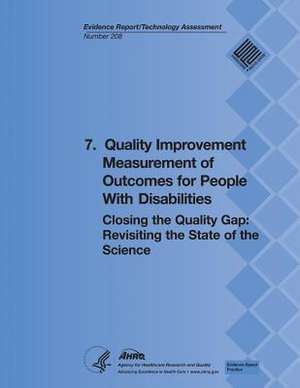7. Quality Improvement Measurement of Outcomes for People with Disabilities
Autor U. S. Department of Heal Human Services, Agency for Healthcare Resea And Qualityen Limba Engleză Paperback
Preț: 130.37 lei
Preț vechi: 137.22 lei
-5% Nou
Puncte Express: 196
Preț estimativ în valută:
24.95€ • 27.09$ • 20.96£
24.95€ • 27.09$ • 20.96£
Carte disponibilă
Livrare economică 01-15 aprilie
Preluare comenzi: 021 569.72.76
Specificații
ISBN-13: 9781483943893
ISBN-10: 1483943895
Pagini: 114
Dimensiuni: 216 x 279 x 6 mm
Greutate: 0.28 kg
Editura: CREATESPACE
ISBN-10: 1483943895
Pagini: 114
Dimensiuni: 216 x 279 x 6 mm
Greutate: 0.28 kg
Editura: CREATESPACE
